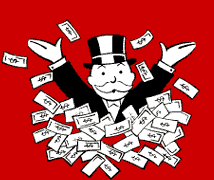Why’d He Do It?
Reading Time: 2 minutes.
Here’s a note from Professor Ellen Podgor about an article on Sentencing the Why of White Collar Crime by Todd Haugh (Illinois Institute of Technology – Chicago-Kent College of Law) in the Fordham Law Review. From the abstract:
“So why did Mr. Gupta do it?” That question was at the heart of Judge Jed Rakoff’s recent sentencing of Rajat Gupta, a former Wall Street titan and the most high-profile insider trading defendant of the past 30 years. The answer, which the court actively sought by inquiring into Gupta’s psychological motivations, resulted in a two-year sentence, eight years less than the government requested. What was it that Judge Rakoff found in Gupta that warranted such a modest sentence? While it was ultimately unclear to the court exactly what motivated Gupta to commit such a “terrible breach of trust,” it is exceedingly clear that Judge Rakoff’s search for those motivations impacted the sentence imposed.
This search by judges sentencing white collar defendants — the search to understand the “why” motivating defendants’ actions — is what this article explores.
“Motive,” of course, is much more popular in detective fiction than in sentencing law, but motive in business-crime cases is more nuanced than in street-crime cases. A better understanding of “why” not only yields better sentencing but would also yield greater public understanding of white-collar sentencing.

